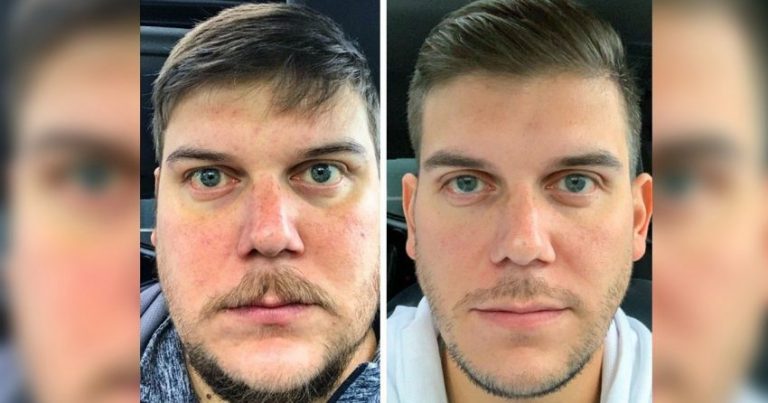Amazing Things Happen to Your Body When You Don’t Drink Alcohol for 28 Days
Daily Reading by Hung Hoang – 07.05.2019
Original Article: Amazing Things Happen to Your Body When You Don’t Drink Alcohol for 28 Days
———
Unfortunately, many people can’t wait to go out again and get drunk, as the truth is that alcohol is a poison that damages all body organs.
After studying situations wherein (mà trong các tình huống đó) people survived even after getting trapped in life-threatening (nguy hiểm đến tính mạng) situations, Bright Side came up with a list of tricks and hacks that you must know in order to get out safely.
Enjoying a glass or two once in a while is completely alright, but the excessive consumption (dùng quá nhiều) of alcohol can seriously damage health, and these are the body areas that are affected:
- Liver: The liver is seriously damaged by alcohol use, and it can become inflamed (sưng tấy), leading to scarring and cirrhosis (xơ gan), as well as alcoholic hepatitis, fatty liver disease, or liver cancer.
- Central nervous system: The brain is deeply affected by alcohol consumption, which can cause dementia-like symptoms (các triệu chứng mất trí nhớ) memory loss, blacking out, depression, etc.
- Circulatory system: too much alcohol can cause high blood pressure, irregular heartbeat, trouble pumping blood through the body, blood clots, stroke (đột qụy), cardiomyopathy, heart attack, other heart diseases, and breathing difficulty
- Digestive system (hệ thống tiêu hóa): Excessive alcohol use can inflame the lining of the stomach, causing indigestion or nausea (buồn nôn), as well as an increased risk of ulcers (loét), chronic (kinh niên) heartburn, and gastritis (viêm dạ dạy)
- Pancreas: Abnormal (dị thường) activation of stomach enzymes can inflame the pancreas (tuyến tụy) and cause pancreatitis (viêm tụy cấp)
- Skeleton and muscles: Loss of nutrients (chất dinh dưỡng) leads to osteoporosis and osteoarthritis, and an increased risk of bone fractures (gãy xương) and weak muscles.
- Immune system (hệ thống miễn dịch): It lowers the natural defenses in the immune system and makes one prone to (có khuynh hướng, dễ bị) gastritis (lây) diseases, including pneumonia (viêm phổi) or tuberculosis (bệnh lao)
- Reproductive health: Too much alcohol can cause reproductive problems, from erectile dysfunction (không “lên” được) to irregular menstruation (kinh nguyệt không đều), infertility (vô sinh), premature birth (đẻ non), miscarriage (sảy thai), stillbirth (chết non), or having a child with fetal alcohol syndrome (FAS)
According to one recent study, an average income earner drinks 9.5 liters of alcohol annually, and this number increases in the case of people who drink when out with friends or after a stressful day at work.
On the other hand, people who stay away from alcohol apparently enjoy numerous benefits. A group of volunteers gave up drinking alcohol for 28 days and documented the effects of their experiment. First of all, their physical appearance changed.
Week 1: Increased appetite and sugar cravings
When drinking, many people feel the need for a lot of food, especially late in the night. If you don’t drink alcohol, your appetite (sự ngon miệng, thèm ăn) will increase initially, and you will face sugar cravings, but it will change after a month. Also, volunteers had a drop in their blood sugar levels, slept bad, and experienced headaches.
Week 2: Better sleep and overall health
During the second week, things got better. Their sleep improved, they looked healthier, and the dark circles (quầng mắt) around the eyes disappeared. Moreover, their sense of smell and taste improved, as well as the function of the urinary tract. The lower saliva (nước bọt) production also strengthened tooth enamel (men răng) and lowered the risk of cavities (sâu răng).
Week 3: Improvement of overall health
Human liver recovers within three weeks, so the skin complexion (màu da) of volunteers improved, their wrinkles (nếp nhăn) disappeared as their circulation was improved, and their digestion improved.
Week 4: Lower risk of cardiovascular disease/High confidence and better mental state
During the last week, some volunteers lost 6-8 pounds, their risk of cardiovascular disease (bệnh tim mạch) was reduced, and their high blood pressure was lowered. Also, they became more confident, and their brain started working more efficiently.
The findings of a 2018 research conducted by the Royal Free Hospital released in the British Medical Journal showed that quitting alcohol for a month:
- Lowers blood pressure and cholesterol levels
- Leads to weight loss
- Improves sleep
- Lowers risk of disease
- Decreases blood protein levels (cancer protection)
- Saves a lot of money
Therefore, the benefits one experiences after quitting drinking are numerous. According to experts at alcoholchange.org, it takes three weeks to break a habit (từ bỏ một thói quen), so taking a month to see the changes will definitely convince you to never go back to alcohol.
VOCABULARY HIGHLIGHTS:
life-threatening (adj): a life-threatening situation, illness, or injury could cause a person to die.
=> Slipping and injuring yourself in the bath is not only painful but life-threatening.
excessive (adj): much more than is reasonable or necessary.
=> Farmers have been criticized for their excessive use of chemical fertilizers.
inflamed (adj) a part of your body that is inflamed is red and swollen, because it is injured or infected.
=> an inflamed left knee.
dementia (n): an illness that affects the brain and memory, and makes you gradually lose the ability to think and behave normally.
=> However, dementia is seen as being specific to the elderly age groups.
nausea (n): the feeling that you have when you think you are going to vomit.
=> Some patients suffer from nausea and headaches.
wherein (adv): in which place or part.
=> Wherein lies the difference between conservatism and liberalism?
prone (adj): likely to do something or suffer from something, especially something bad or harmful.
=> Some plants are very prone to disease.
abnormal (adj): very different from usual in a way that seems strange, worrying, wrong, or dangerous.
=> My parents thought it was abnormal for a boy to be interested in ballet.
appetite (n): a desire for food.
=> Symptoms include tiredness and loss of appetite.








